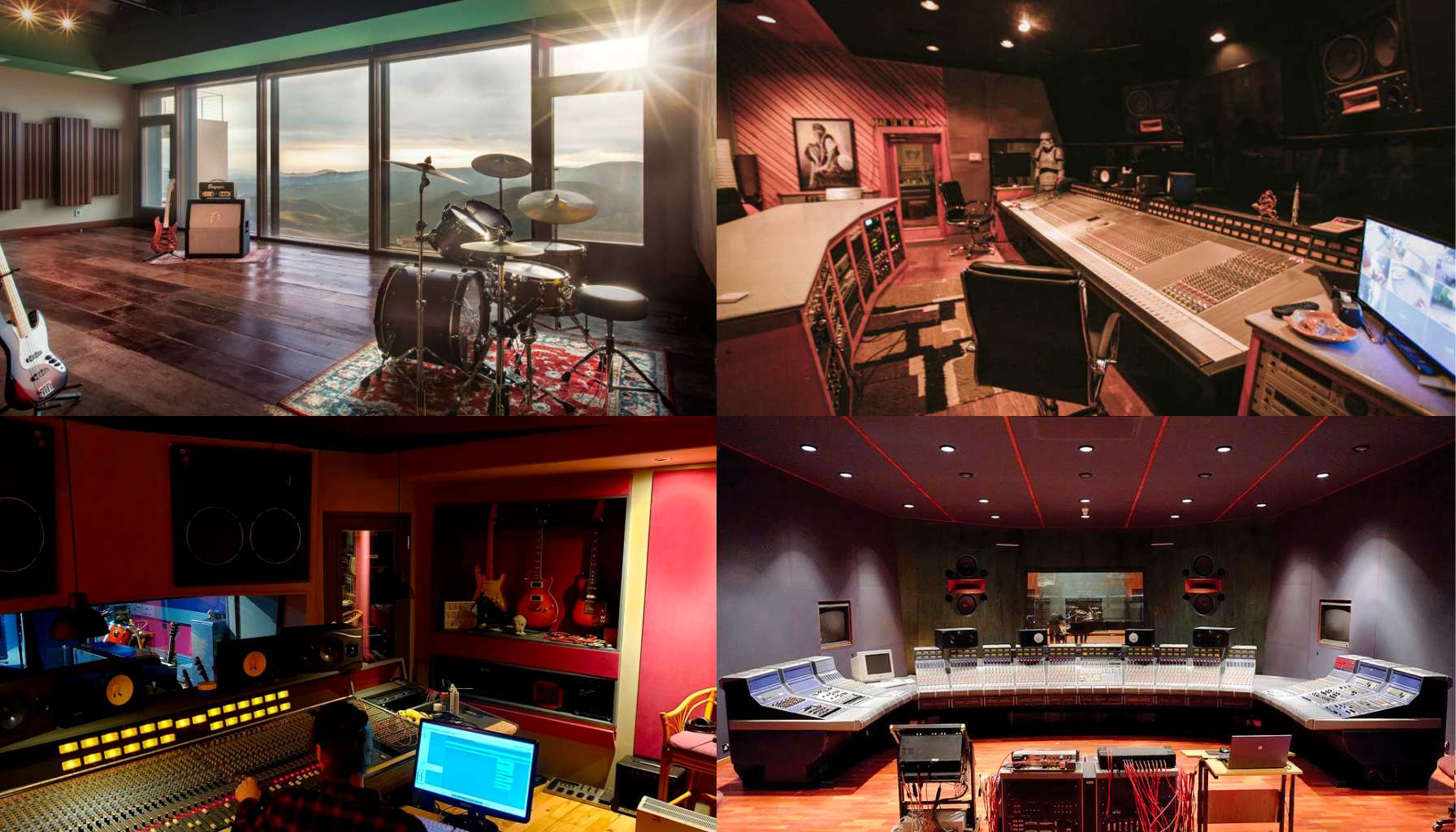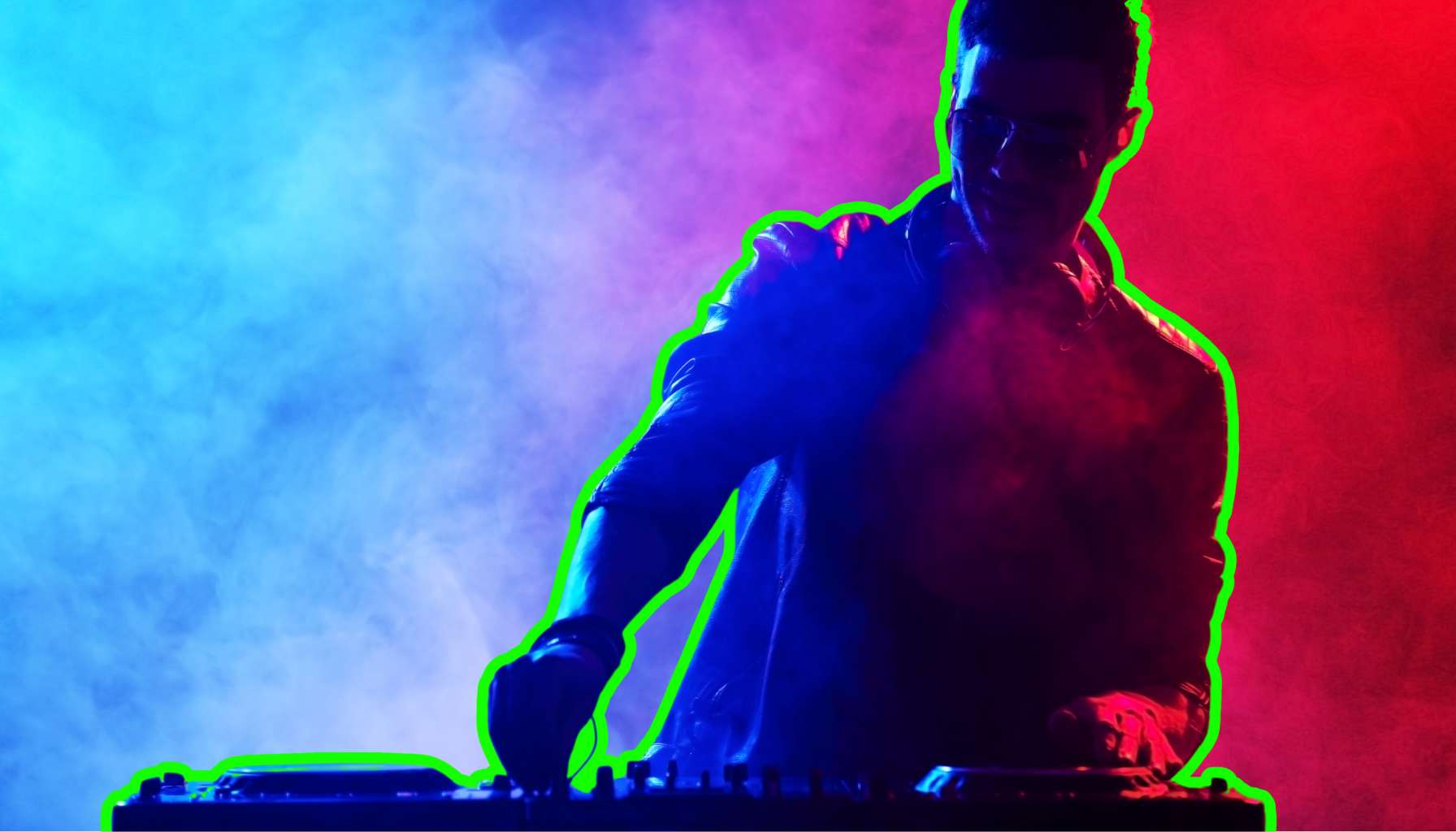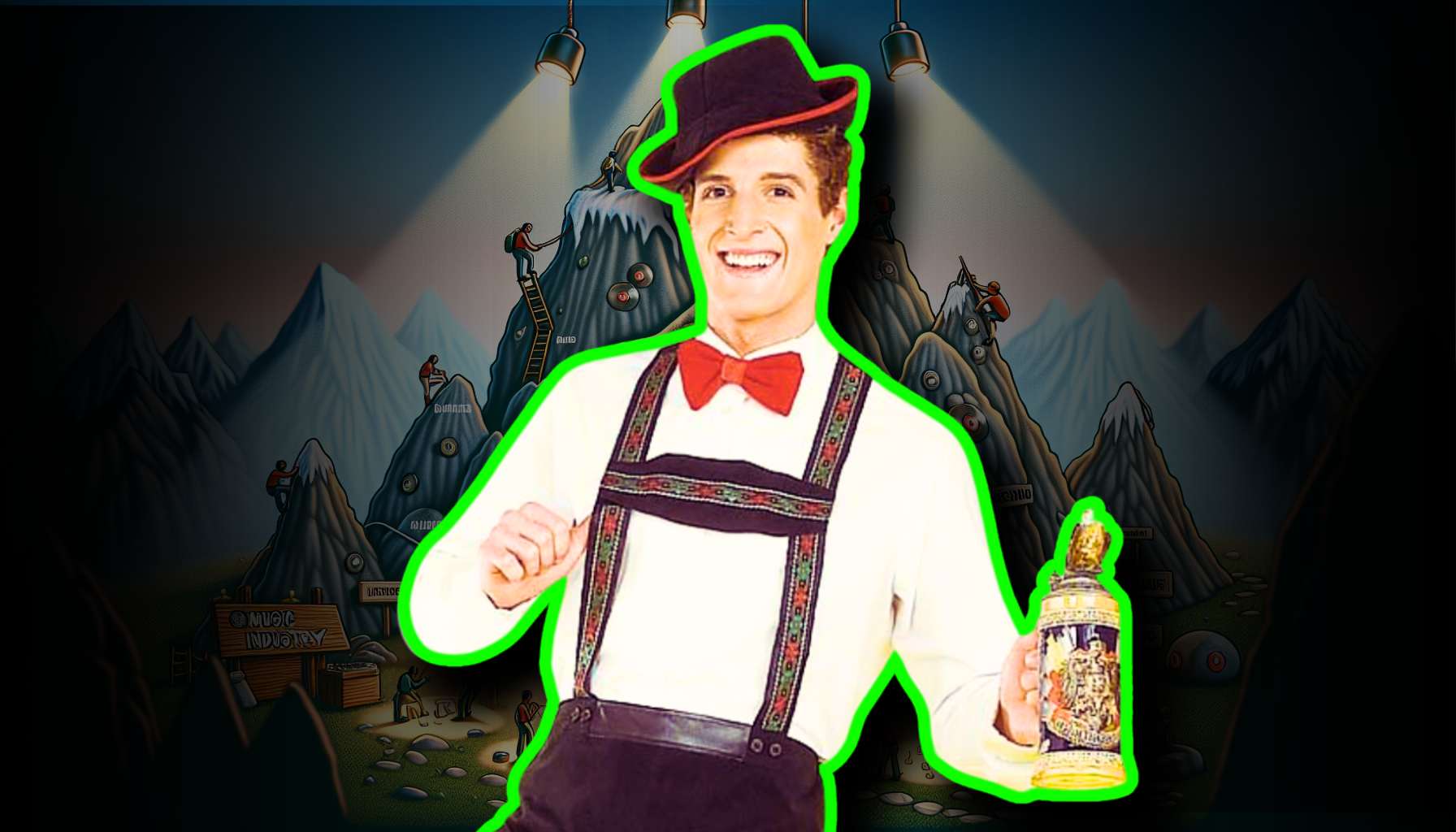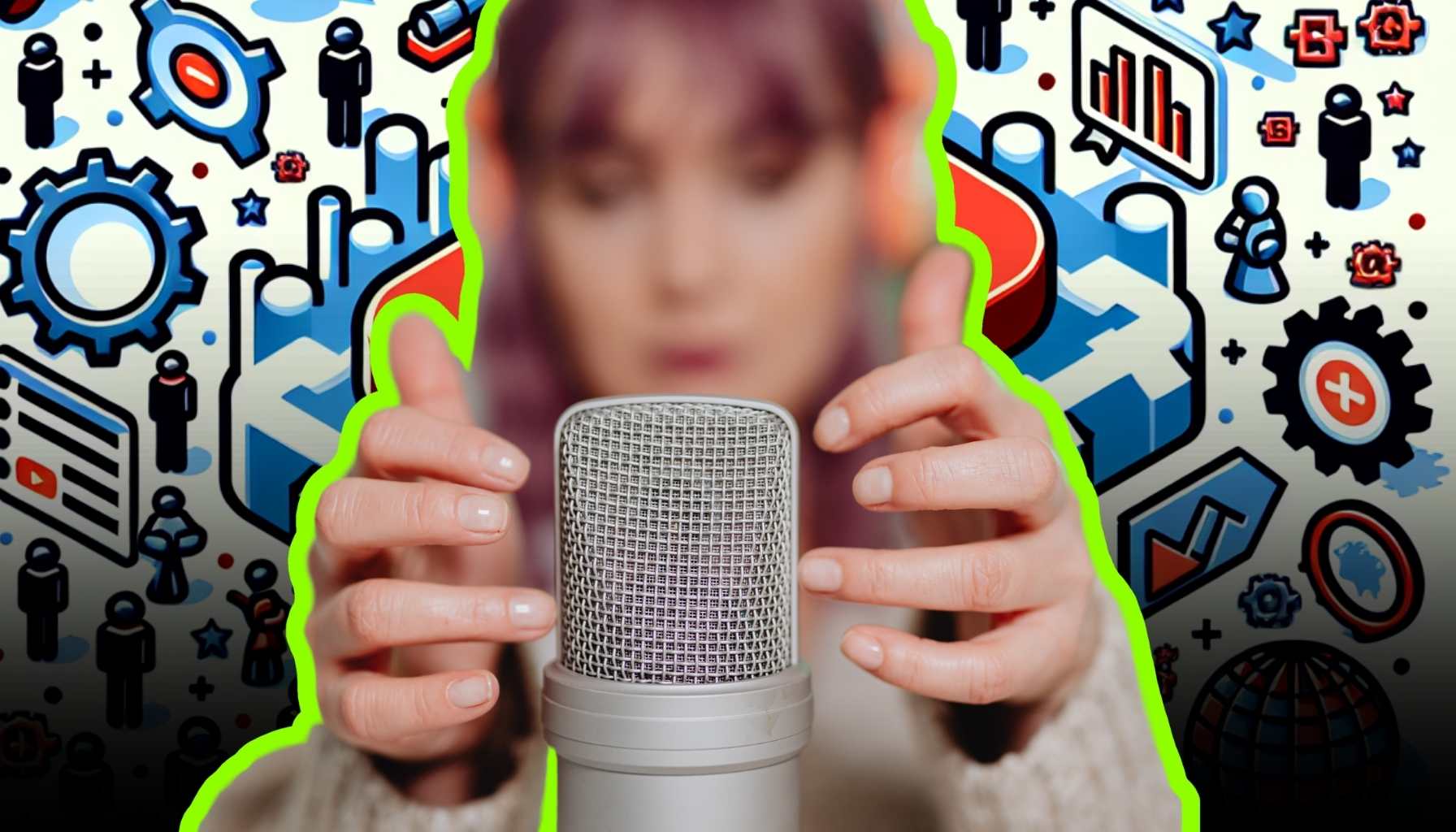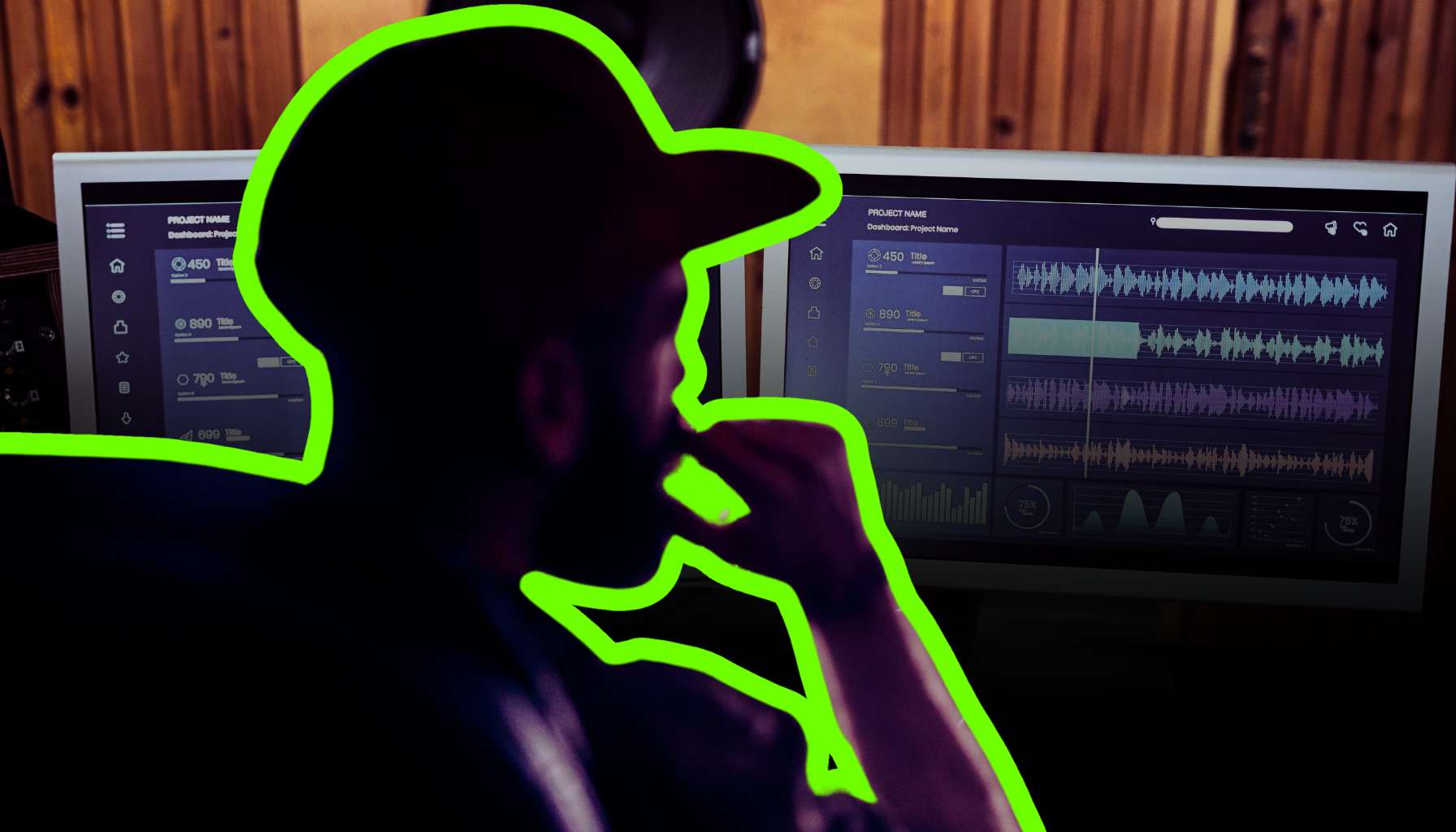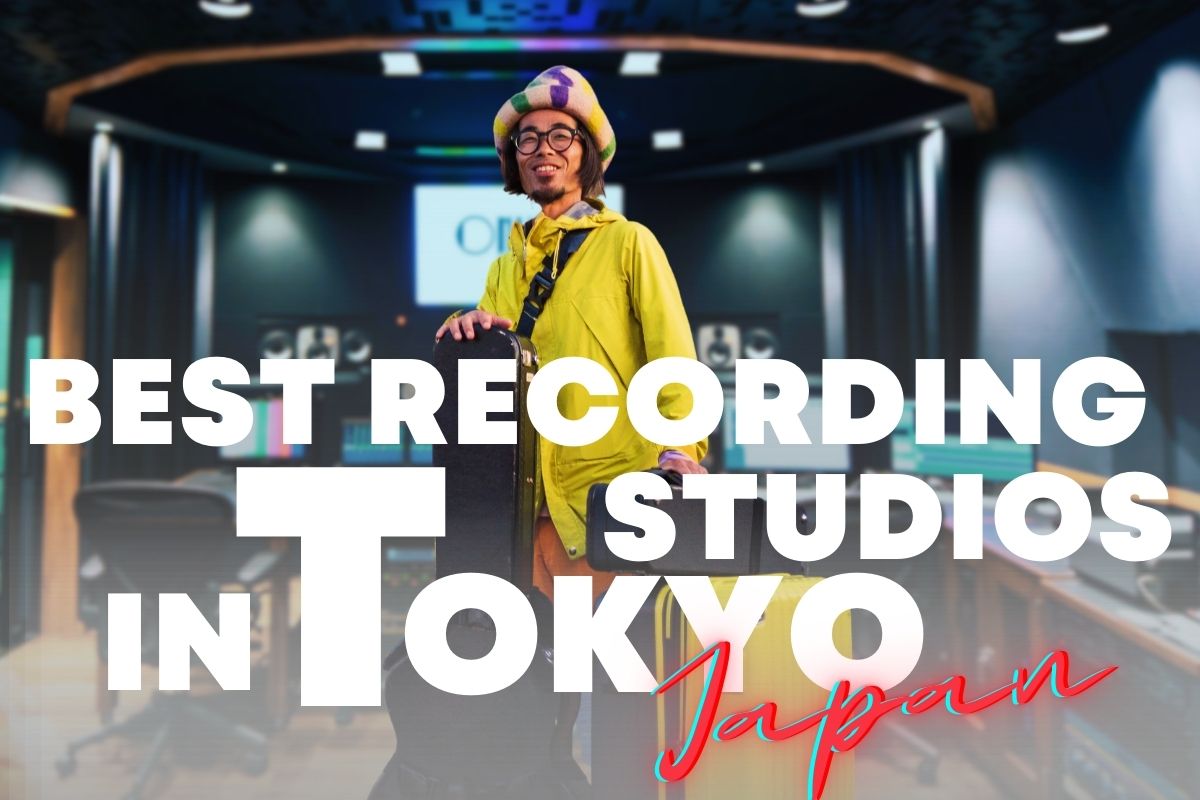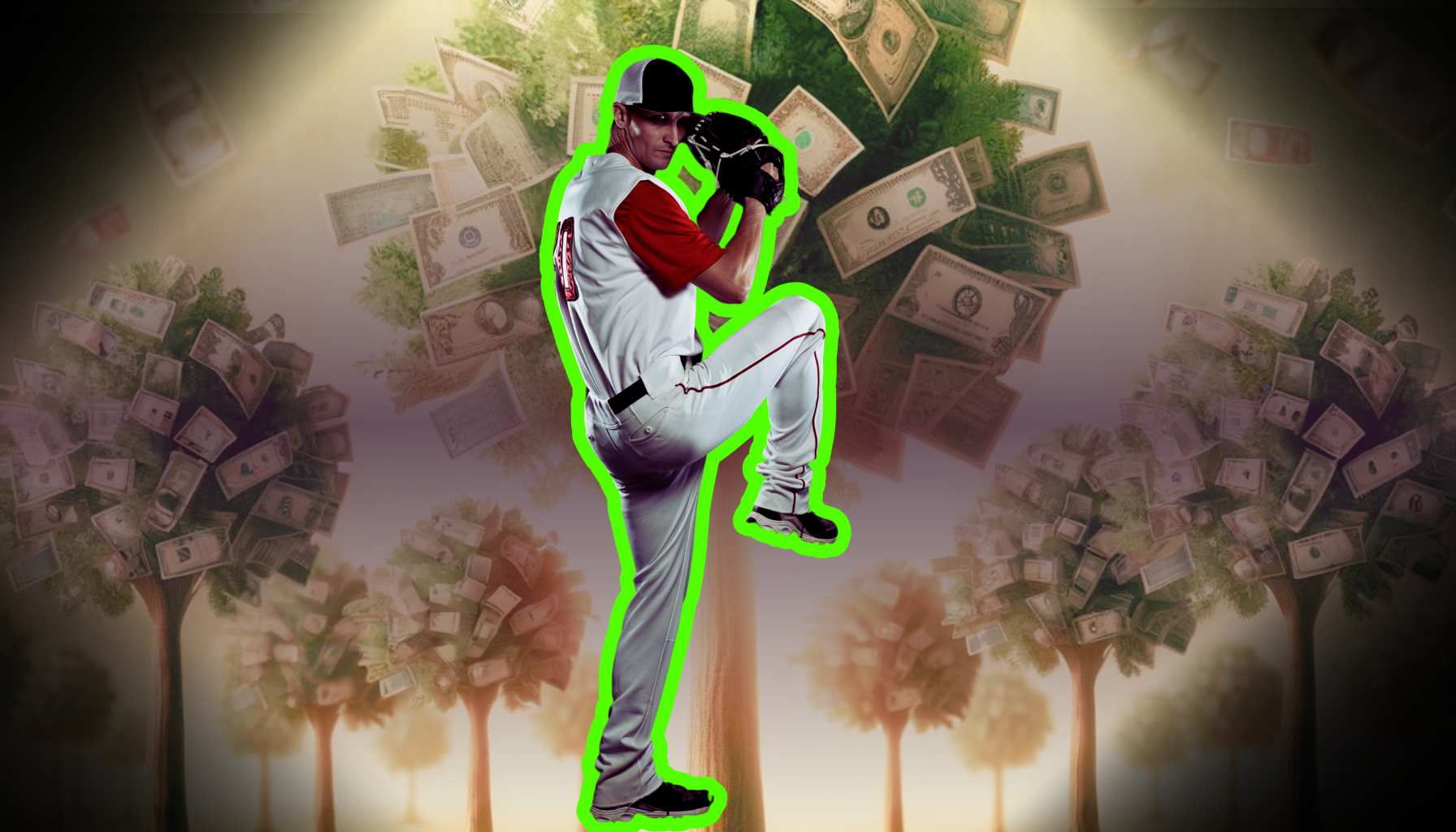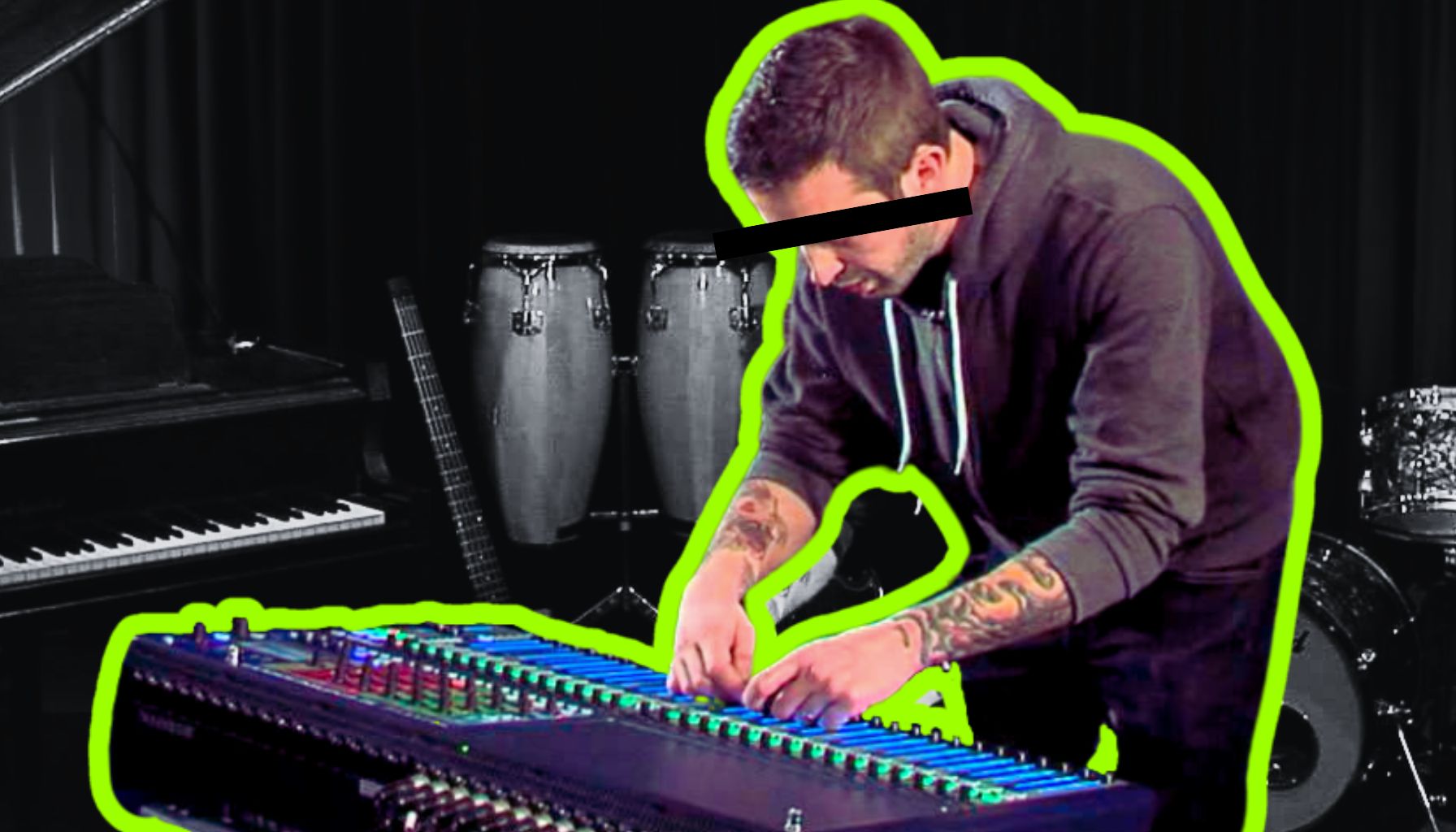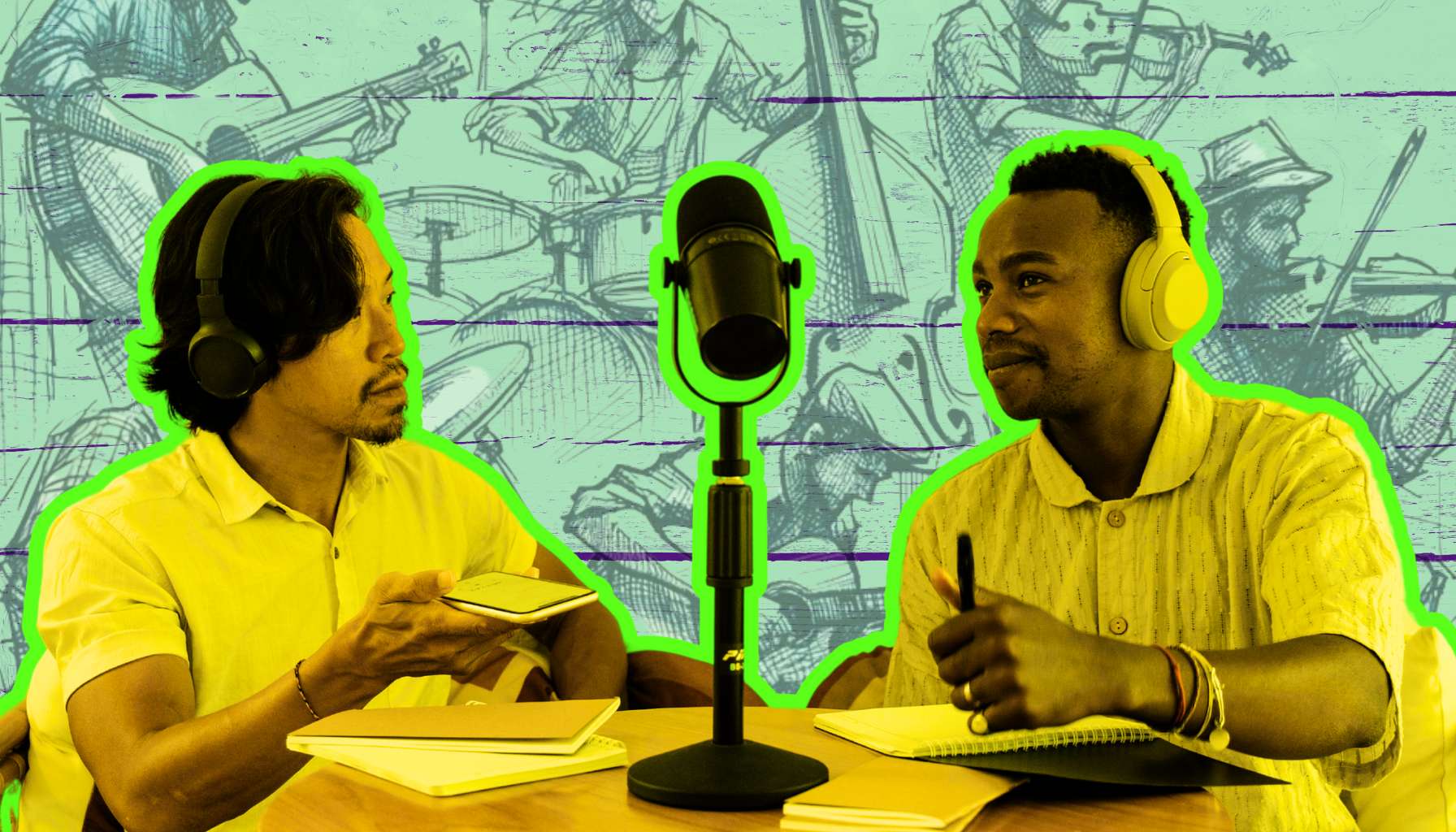Introduction to Copyright in Music Production
Discover the world of copyright in the music industry that is so complicated that it’s no more accessible than the moonwalk.
To ensure the work is not unlawfully used, it is crucially essential for music producers of both novice and experienced expertise to have a firm understanding of what copyright law permits without a party’s prior permission.
The Importance of Copyright in the Music Industry
Creativity is not only abounded by the unlimited invention but also impedes the piracies from the pirates on this avenue. Use of obtained authentic copyrights that exist as a fence high enough against unauthorized users and circumvention inside the way of music.
Conceptual Understanding of Copyright Law
Imagine a freshly baked pie that is absolutely mouth-watering, and the smell in the air is almost inescapable. Sounds great, right? Now, imagine that you are the one who made this pie, but you are the only one who can decide who gets to eat a piece.
Just like copyright, which allows you, the creator, to dictate who can duplicate, perform, or make a derivative work off of your music creation. To completely understand how this works would be like having the recipe for the pie because the copyright legal structure defines your rights as the creator of your musical work.
The Economic and Creative Significance for Artists and Producers
To comprehend copyright is to fully understand the worth of your work. It is not solely about money; it is about recognition for the time and effort put into your work. When your financial well-being relies on the success of your next big thing, you must comprehend copyright just like you understand the words of the song you are working on.
The Scope of Copyright in Music Production
A foray into the ability to reproduce music has been discovered to go beyond the visible and initial skills, as it operates within the realm of the side effects of a fiasco.
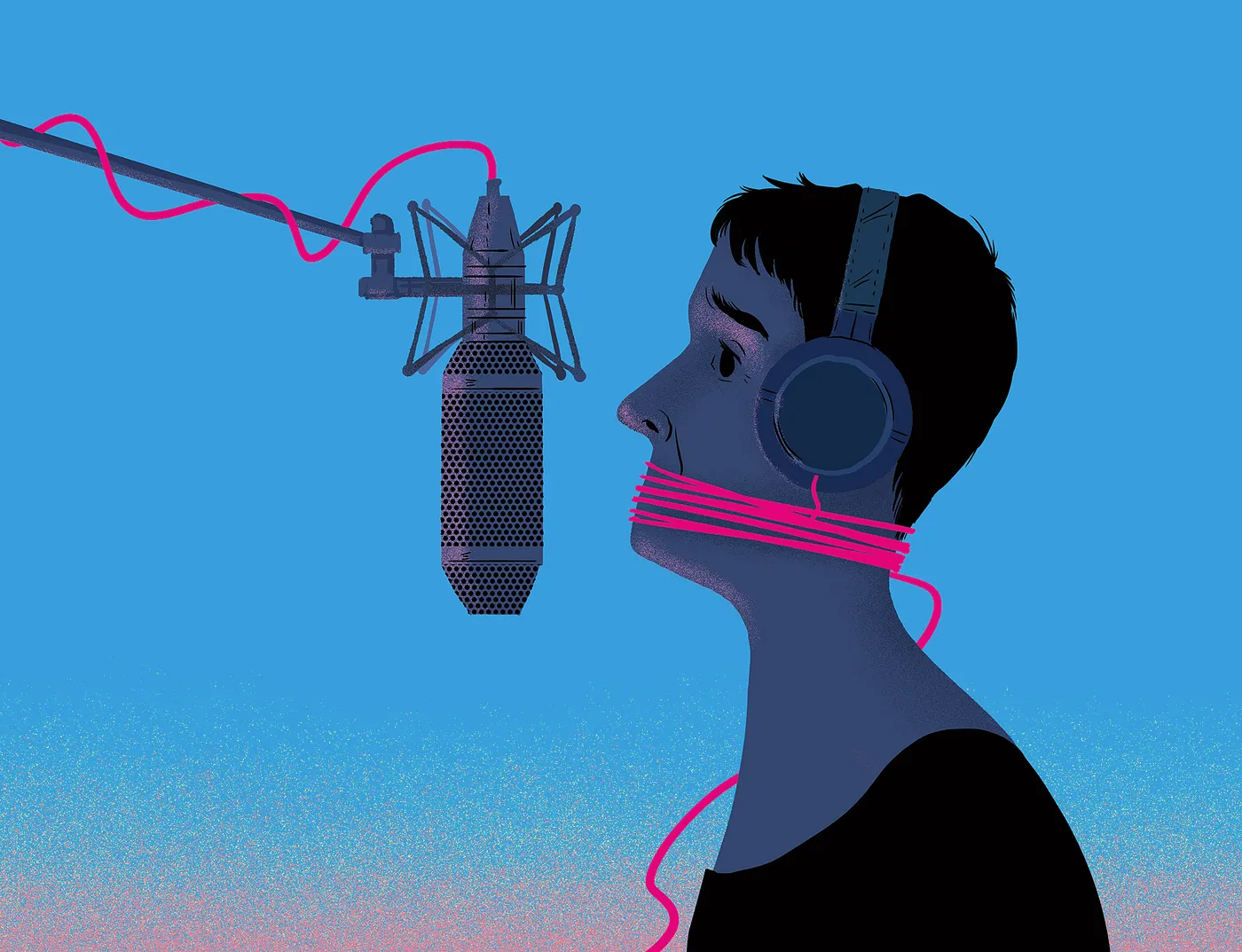
What Copyright Protects in Music: Compositions and Sound Recordings
Copyright in the music industry and in music publishing refers to the legal representation of the producer and the artist’s ownership rights to any songs, lyrics, and musical content written during the careers of both parties. It is essential to notice the two types of copyright, as the music industry can only function effectively by using songs and sounds. The copyright law is spread over two areas – the composition and then the sound recording.
The composition is just one part of the song, generally written as sheet music. It is unusual and less understood, thanks to how it is written and notated. Therefore, as mentioned, two different kinds of copyright need to be taken into account at this time to understand the idea more clearly and elaborate for future use.
Duration and Territory: The Lifespan and Reach of Copyright
Copyright Term and Scope Copyright terms expire and are limited to a geographic region. Meaning there is a limited time to be protected by copyright. Like a band’s t-shirt or a hat, you can’t wear it or show it off (in most cases) forever; the same goes for copyright. Copyrights last for a long time but only for a while, usually for the author’s life plus 70 years in many countries.

Again, in most areas, it’s similar to your favorite band’s t-shirt; if they toured, they usually went international with you, proudly wearing the shirt in different countries. The decree excellent knowledge to grasp is the duration and territory of your copyright. The duration will let you know how long your filtering author’s protection has been exercised, and the territory will let you know in what places your creator has been protected, author.
Fundamental Copyright Principles for Music Producers
The critical reason why copyright is so essential to music producers in the music industry is to ensure you know the underlying structure of copyright because you do not have to worry about your(the music producer) instrumental/beats being stolen, and if someone does steal your instrumental your protected by law.
Distinction Between Composition and Recording Rights
The difference between composition and recording rights is one of the most essential things when referring to music copyright law. This is crucial to understand if one is a music copyright attorney, a musician, or a music producer. The right to the song composition is the ownership of the song’s musical composition, meaning the melody and the lyrics. The rights to the song’s recording are to a specific recording of the song’s composition. This is important to distinguish because each type of rights is related but different.
Did the question ever pop up in your brain: how can a cover band profit from Beatles hits without adverse outcomes? Technically, there cannot be… why because it is legal rights, not the entitlements received when making the correct left turn at a stop light.
Understanding Musical Compositions vs. Sound Recordings
Songwriting has three primary parts: melody, lyrics, and chord progression. This is the song’s body. On the other hand, sound recording is what was recorded, which equals what performing and breathing are to a live organism. In addition, it is essential to know the difference between a composer’s copyright and the recording artist’s, as it is just as vital a distinction as the difference between your bass player and your drummer.
Among the components within the industry, one of which is professional songwriters, each contributor has a distinct role within the music production process. Walk through the process of making music. The music writer adds another tier of complexity to the songs that any band or performer must produce to play music. Then, that composer writes all of the music to be performed by the band.
The Roles of Songwriters, Composers, and Performers
In assigning roles, the songwriters and composers create the music, including the lyrics and harmonies. The performers put the music, with the lyrics and harmonies, together in the studio or live performance to create the definitive recorded “thing.” When played live, the performance or performer is not recorded… The ownership in copyright is still shared – each party may still have a share. Failure to acknowledge each other’s contributions to the creation of copyrighted works can and will cause problems regarding copyright ownership.
Copyright Ownership and Transfer
With some exceptions, copyright laws allow a copyright owner to transfer some of its rights to a third party using a transfer agreement. They must make sure to have a written agreement of the transfer and have both parties sign the document to keep them from having no dispute in the future. This process will require the person with a copyright to obtain specific knowledge of copyright law and the transfer agreement.
Extreme care should be taken with the transfer of copyright and ownership, as the transfer of copyright or ownership of something that bears so much power can put you in a place of liability because ownership in copyright is a liability. Do not take this lightly. The word “ownership” can be a hot potato in copyright. Take your time.
Rights of the Original Creators
The rights that are given to the creators of their work.
Sometimes, the original authors are responsible and privy to the benefits. On the one hand, it may move the copyrights, leading to music that allows commercial work or selling several melodies to popular performers. On the other hand, ownerships of the songs have their expense and benefits.
Assignment, Licensing, and Work for Hire
Copyright can be a wild horse but can be tamed with the proper agreements. Assignment is when you sell your rights, say goodbye, and wipe away a tear. Licensing is more like a timeshare, letting others use your work while you still hold the reins. Work for Hire? That’s when you create something on the clock, and your employer gets the copyright. Think of it as the boss’s name on your office’s “Employee of the Month” plaque.
As we segue into the next section, remember that navigating copyright is like playing a complex chord – it takes practice, patience, and a good ear for detail. But get it right, and you’ll be harmonizing with the bank.
Obtaining and Using Copyright Permissions
Have you ever felt that using someone else’s music in your videos is a scary experience? Well, you’re not the only one. It’s like playing “Simon Says” on a high stake. The only difference is Simon is now the law, and there are more severe consequences than just having to sit in for “Simon says.”
Licensing Music for Production Use
Permission intervened with him first; now he wrote the song, so he should be saying the music, not her. It’s like, I think of an idea and want to say it, or Kylie gives me this thing called life, and I want to share it with people, said Jordyn. It’s like my own track when I think of something on my own, and I want to share it with people, but I can only get the legal thumbs up once someone lets me. Let’s walk in with documents saying this is the song we want to say; now we will say it. We have the right to do that. If someone handed you the keys to a costly car, you wouldn’t take that car without even asking, right? If you did that, you would get into a lot of trouble. It would help if you asked for the keys to the car.
Mechanical Licenses for Cover Songs and Reproductions
To duplicate a song and share that composition with others- for instance, a cover of “Stairway to Heaven” or your interpretation of “Hotline Bling”- it will be necessary to buy a mechanical license. The mechanical permit will act as a pass to get a bootleg version of your cover released legally on a piece of vinyl or as a file that can be downloaded without fearing the sheriff, while not owning one of these leaves you as an outlaw. If you want further details on how to come across these licenses, the Harry Fox Agency manages them often.
Synchronization Licenses for Music in Videos and Media
Are you planning to marry Beyoncé’s song “Single Ladies” with your new Rom-Com trailer? Well, guess what? You can’t. Not legally, anyway, unless you’ve purchased a synchronization license. Without one, you violate the U.S. Copyright Act. Sync isn’t only about diaphragms and silhouettes. It’s a negotiation between the music supervisor and copyright holder, and it works a lot like asking someone out to the prom if they’re already going steady.
The Role of Performing Rights Organizations (PROs)
The PROs are the Robin Hoods of the music industry—they take from the rich airwaves and give to the not-so-rich creators. They make sure when a songwriter or composer’s work is being played in public, they get their fair share.
Collecting Royalties for Public Performances
When any musical is played in any public setting, that is considered to be a “public performance.” Performance Rights Organizations, or PROs, are groups that easily interact with the creators of the music, collecting royalties on behalf of the creators to ensure the songs’ royalties get to the songwriters. PROs like ASCAP and BMI ensure that a couple of pennies will end up in suitable guitar cases when the song is played at the bar or on the radio.
How to Work with PROs as a Producer
Working with PROs is like having a financial advisor for your music. Once you register your works with a PRO, you can sit back and let them handle the royalty collection. They are responsible for tracking down every last note of yours that was ever played in public; all the while, you can do what you do best––creating more music for your listeners to include in their playlists.
Common Copyright Issues in Music Production
Navigating the swirling seas of copyright in the cutting-edge landscape of music production can feel like stumbling across trying to emulate Jimi Hendrix’s guitar solo on a violin instead of a guitar, both in its sheer charisma and complexity. Conversely, as we press into the matters that producers commonly face, the proverbial saying holds great significance: knowledge is power – because, this time, it could potentially save you from getting on the wrong side of a legal battle!
Sampling and Copyright Clearance
Think of sampling like being a chef; the music is your dish – you use your favorite pieces to perfect your dish. But if your sauce recipe is top secret, you don’t want other chefs using it on their dishes! Musicians don’t like that you’re using their work without asking.
Legal Implications of Using Samples
So you’ve made an amazing new remix of a 70s funk hit, and now you’re just going to release it into the wild, right? Reinvention is fantastic, right? Well, let’s make sure you “clear” those samples first. As a producer, you must remember to clear your samples unless you want to find yourself in a crazy legal pickle that makes untangling your headphones look like kiddie stuff. Clearing your sample means getting permission from the original songwriter and record label.
Ethical Considerations and Best Practices
It’s not just about staying legal. It’s about respect. It’s an acknowledgment to the people who created the tunes you love. Morally, it’s the right thing to do—the industry standard. Today’s sample could be tomorrow’s hit. You would want the same.
Cover Songs, Remixes, and Copyright
We will now transition to cover songs and remixes, two types of musical re-creation akin to siblings.
Navigating the Nuances of Recreating Existing Works
Covering a song is like performing a play; you put your twist on an already out-there script. You need a crash course mechanical license to distribute your version like a play. When you remix a song, it’s like rewriting the play; you’re on a whole other field and require express permission from the copyright owner.
Limits and Permissions for Derivative Works
When you create a derivative work, you are relying on someone else’s base work; it is like adding a second story to their house; you can only start construction if you talk. About this, with the house owner, or all of the houses might collapse; the same thing happens when you create music; you need permission for the work before you start building everything. Remember that you share the music with others. When you sample, cover, or remix, do it with integrity, and you will not only hit the right chord with your fellow artists but will be in step with the law.
Protecting Your Work: Copyright Registration and Enforcement
Having been familiar with the world of borrowing others’ music, let’s move on to flipping your situation and looking at the protection of your music. After all, if your music has been used without permission, you feel about as good about it as a hot-shot college football player might think about losing his chance to go pro because of a significant injury.
Steps to Secure Copyright for Your Music
Having given birth to a chart pussy, you’re on the brink of releasing it into the world, much like your child’s big day into the world of the nursery; you want then to meet and greet some friends, just not the type where it ends up straying down the garden path creating illegal downloads. And sure, there’s always the option of a “poor man’s copyright” on your original music, but why go to all the trouble of

creating a hit if you can’t get your original work properly legally handed in a court of law and protected by all that an appropriate copyright gives. Here’s what you need to know about copyright law.
The Process of Registering Copyright in Music
Copyrighting a registered song is similar to putting a seatbelt on your track before it heads out on the highway. It’s not necessarily a crucial requirement, but it’s definitely recommended. In the U.S., this process involves filling out the appropriate forms on the Copyright Office website, paying a fee, and sending in a copy of your work. It’s the most critical step you can take to protect your music from being copied faster than an Insta-caption.
International Copyright Protection
If you’ve got tunes with more passports than James Bond, international copyright protection is something to consider. The Berne Convention has your back, meaning your work will be protected in all member countries. It’s like having a bouncer in every club in the world that your track is played in.
Addressing Copyright Infringement and Disputes
Infringement is the boogeyman of all musicians; it’s unwarranted, unsettling, and something that can consume your profits if not adequately stopped.
Recognizing Infringement and Taking Action
If a cease-and-desist letter is a little *****, consider negotiation, mediation, and litigation as well-placed uppercuts. Negotiation is a regular happy little jam session where everybody’s happy, cheering, singing, and playing kumbaya. Mediation brings in a third party, like your band manager, to help settle things. And litigation? That’s just like going to court—only you do it when all else fails, like when the person you’re negotiating with sounds like absolute ****, and you must look to that gavel-bearing judge on the bench for backup. It’s the severe sh*t, you know, means you’ve hit the fan.
Resolution Mechanisms: Negotiation, Mediation, and Litigation
Negotiation, mediation, and litigation are the uppercuts if a cease-and-desist is the jab. Negotiation is like a jam session where everyone leaves happy. Mediation involves a third party, like calling the band manager to settle a dispute. And litigation? That’s the courtroom showdown, the last resort when the other party’s playing out of tune, and you need a judge to drop the gavel like a bass drop.
As we slide away from protecting our creations to the funky grooves of fair use doctrine, remember: securing your music is like locking your doors at night. It might seem like a chore, but it keeps the boogeyman (or the music thief) at bay.

Fair Use Doctrine and Its Application in Music
Now, in your mind, think of yourself at a buffet. There are extraordinary all-you-can-eat tunes and melodies, and you can’t wait to pile your plate to the ceiling. But wah, hold it, oh maestro, this is no ordinary buffet. This is the fair use buffet where the line between a free lunch and a lawsuit is thinner than the string on a Stradivarius.
Understanding Fair Use and Its Limitations
It’s like a backstage pass to a concert. For example, it puts legal limits or restrictions on how long a song can be played. But you can only play the music to a few people, like in a concert.
The Four Factors of Fair Use in Music
Think of these four factors as your beacon in the fair-use galaxy. They are the amount or portion of the song you are using, what you are doing with the music, whether you are using it for educational purposes or commercial purposes, the nature of the copyrighted work, and the effect it will have on the market value. It can be a tightrope walk like playing Jenga with vinyl records cause if you pull the wrong block, everything will fall. Check out the whole story of the Copyright Office’s take on fair use.)
Case Studies and Precedents in the Music Industry
Think of fair use as a road trip. Sure, white lines, yellow lines, and guardrails tell you where to go and how fast to do it. But there’s also a lot of empty space to the left and right of you. (Unless you’re in Boston, your road is a drunkard’s walk of pavement.)
So what do you do? You know you can go when the light (probably) turns green. You can do 10 miles per hour over the limit and be fine. You know you can squawk into your phone about Bitcoin, and everyone will be okay. Why? Because you know the rules. Because you know the big sign at the side of the road that says THE CONSTITUTION—and you know what it says. Plus, you know the stories. You know, the case studies and the regs and all the rest. These artificial landmarks tell us where to go, when, and how fast.
They’re the campfire stories of music. The cautionary tales. The success stories. The dos and don’ts. The rattlesnake bit my grandmother. The other one told her about fake IRS agents and wanted her credit card number. The other one bit my grandfather while he was taking out the trash. We’ve had our fair share of Blurred Lines cases in the music industry. And if you’re smart, you’ll memorize every one of them.

Fair Use Considerations for Producers and Creators
To the producers and creators, a legal claim of fair use is like finding that guitar pick you lost in the crack of the couch—it’s a small win, but it’s a win. Misuse it, and you’re stringing way more than your six-string.
When and How Fair Use Applies to Productions
You can use a piece of music to upload a video tutorial on mixing a song on YouTube, but that does not mean you can use the same music to sell sneakers. It’s all about context. If you are unsure, then the test that decides if you should go to court over something best used by a non-lawyer is like walking on a tightrope while wearing clown shoes; it can be done, but it’s tough to pull off with any credibility, and if you fall, it’s going be painfully ridiculous. Try to get an idea of the fair-use landscape before you step out.
Mitigating Risk of Infringement Claims
Deciding to mitigate one’s risk in the Wild West of music production is like choosing to ride a trusty steed so you don’t end up getting jumped by six outlaws in a dark alley. The three simple ways to keep yourself out of trouble are documenting your decisions, seeking legal advice, and when in doubt, getting permission. It’s the difference between smoothly sailing and totally capsizing in the copyright. And as we fade out from fair use into the world of the digital age, remember, just as quickly as a pop star’s wardrobe is changing, so is the music industry. So stay tuned to the next section, when we’ll shrink gigabytes into tiny squares, jack right into your motherboard, and expose digital rights and streaming platforms. Understand these digital dynamics, and you’ll know how to make your music matter in today’s marketplace.
The Digital Age: Copyright Considerations for Online Music Production
Welcome to the digital age, young grasshopper, where a single gossip tweet could turn your top-of-the-chart music hit into a one-hit-wonder faster than a snapping guitar string during a killer power chord. Welcome to the world of online music production, where the rules are as clear as the static played through an amplifier turned up to maximum volume.
Digital Rights and Music Streaming Platforms
In this era of the extreme trials of a digital gold rush for the new streaming musical song top companies, being able to set the pins to the platforms will be the only type of art waking its oh silly sense and the Kind of drum.
Navigating Platform-Specific Licensing Requirements
All these sites are different, work differently, and have different things you must do according to their rules, and failing to do so would be like stepping on the singing guy in the band. It’s just not a good idea; it hurts and can encourage a lawsuit, too; all of the sites get shamed or sued more than the others for these things, so click here and research how to avoid stepping on anyone’s toes.
Understanding Digital Royalty Streams
Digital royalty streams are as fragmented as a shattered vinyl. Streams don’t pay as album sales did, so it is essential to understand how to maximize your digital royalty streams; you need to know where to look, like panning for gold. SoundExchange provides this sifting of the silt and separates the royalty gold.
Copyright and Social Media
Social Media is where your music can spread faster than the cat video you posted, and when it goes viral, that’s great, right? Well, with great virality comes great responsibility and a new world of copyright issues.
Sharing Music on Social Networks and User-Generated Content Sites
When it comes to sharing your music across social media, it can be a game-changer, but in turn, it can also have many copyright problems. Just one wrong click to upload your track without the correct permissions, and you could receive a takedown notice or even a lawsuit if you’re not careful. Knowing and understanding the policies of platforms such as YouTube and TikTok is essential. Otherwise, you’ll find many doors shut in your face when your first hit single has been uploaded!
Collaborating and Distributing Music in the Era of Virality
Collaboration is all the rage in music these days. But when the collaboration goes viral, who gets the credit? Who gets paid? Attempting to answer these questions is like trying to play a synthesizer while wearing mittens – clunky and complicated.
Your best resources for a smooth gig are clear lines of communication and written agreements. As we move from the digital domain to the moral high ground, let’s not forget that with great power – the power to publish your content with the click of a button – comes great responsibility to play fair. The upcoming section shows how to create an ethos of copyright respect in the music-making community. It is about making sure everyone is playing the right, legal notes so the music never has to stop.
Ethical Responsibilities and Best Practices in Music Copyright
Well, right now, let’s all take a second to reflect on our year so far … in the Rock and Roll Recording Booth of Ethics . . . and you should picture in your minds this soundproof booth. Only instead of being soundproof, maybe our booth is made of respect. . . integrity. . .the golden rule in the music biz . . . which is not ripping off our fellow artists, right? The goal here is to make some best practice sounds that resonate with all of us together as being legal and ethical.
Fostering a Culture of Respect for Copyright in the Music Community
Writing a song is basically writing a love letter in melody. However, the only way to describe stealing someone’s song and not getting accused of plagiarism is like singing a love song to someone else’s girlfriend, and as a writer, you shouldn’t do it!

Ethical Use of Other Artists’ Work
Using other people’s art in your own work without ruining their work and getting yourself sued is like a dance-off with the law. You both gotta know the moves. Whether it’s sampling a beat and mixing it into your music or if it’s making a cover song. Always be sure to have your rights cleared out properly. It’s not only about being safe but also about being classy. Look to the WhoSampled website for an idea of how to appropriately sample your favorite artist’s homage, shout-outs, and homages in the music world to find out how.
Crediting and Acknowledgment Standards
Downplaying because your tags are absent is positively terrible behavior. That’s like starting a graffiti magnum opus, only to withhold whose nametag is tagged across. Metadata is a spray can in the digital era, so make sure your nametags are there. Every digital trail must lead back to the master creator. Here is a handy guide on metadata that can be utilized to create the perfect specific genres plus metadata.
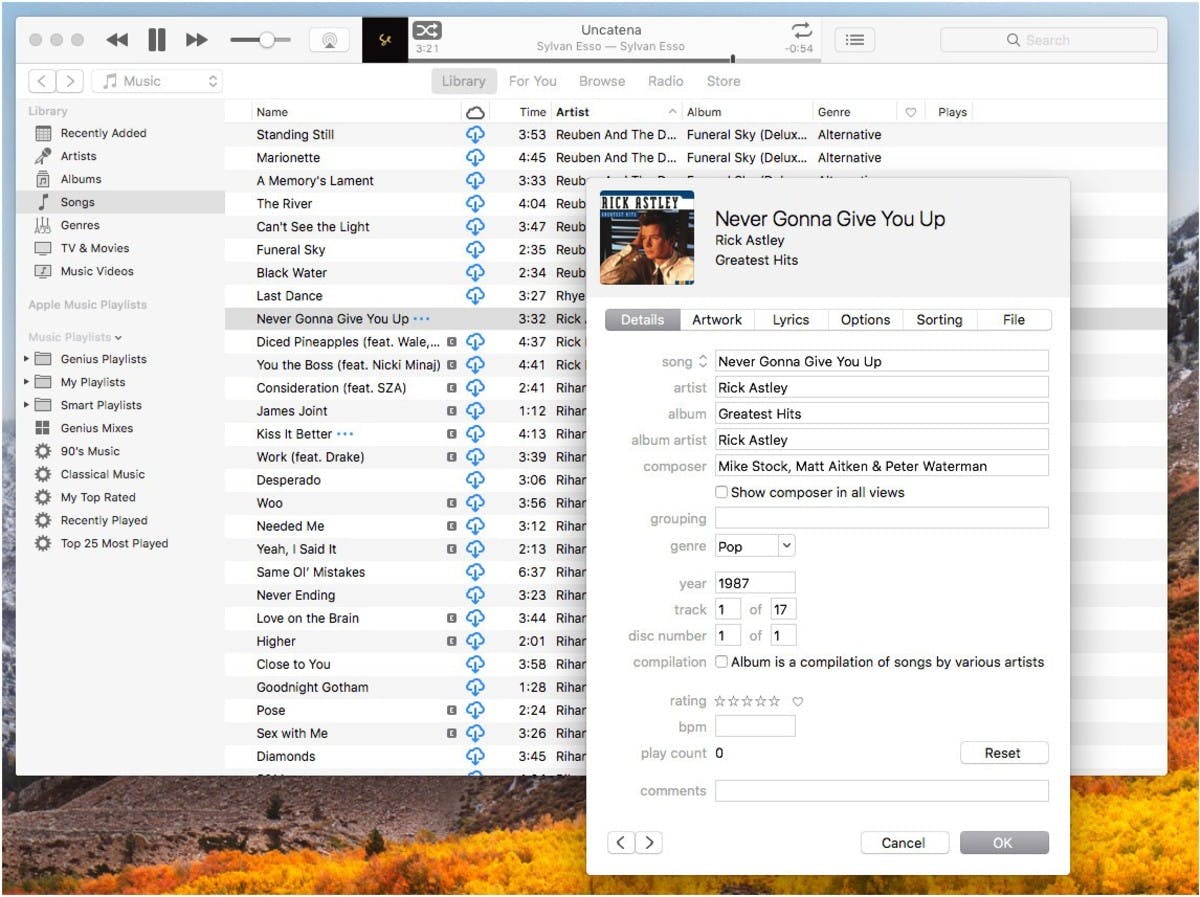
Long-Term Implications for Music Career Sustainability
Now, let’s be honest with each other for a moment. Your reputation in the music business is the same as your high score on that throwback arcade game in the corner of the bar. Play pretty, and you’ll be at the top of the list for everyone to beat. If you play unethically, you’re just a couple of flickering letters on a screen.
Building Credibility and Reputation in the Industry
Credibility is the currency in the bank of your music career. It’s also what accrues your interest in opportunities and collaborations. How do you build creditability? You build it by being transparent, knowing how to honor agreements/contracts, and knowing how important it is to protect your copyrights. Remember, in music, your word is your bond. Your reputation is as essential as your chords and beats.
The Impact of Copyright Practices on Industry Relations
This is more than staying out of trouble and how you’re perceived in those smoky rooms where deals are made. Knowing your copyright and conducting yourself ethically makes you a solid riding partner. The guy that never misses rehearsal, you’re the guy that everybody wants in their band.
As we move into the grand final of our copyright symphony, we must remember that this is not merely a case of sticking to the rules; it is about setting a framework for a fertile creative future. In the next section, we will put the finishing touches on as we look towards a proactive approach to copyright in music production – it’s about calling the shots in a constantly remixed industry – to be the CEO of your destiny.
Conclusion: Embracing a Proactive Stance on Copyright in Music Production
Now, as the last few notes of our sonata on copyrights hang in the air, let us reflect on the vigorous thumps and pathetic decrescendos that have formed this masterpiece. From the first few powerful yet brief touches of the importance of copyright laws in the music community to the harmonious, clear strains of moral obligations, each measure has helped to create a knowledgeable composer.
Recap of Copyright Essentials and Their Importance
Likewise, we must remember the doctrines we’ve jammed with. Knowing about mechanicals versus all the other rights tied to a master recording, Obliging by copyright laws, buying all the proper licenses, and recognizing fair use! These are like the ABCDs to a music producer’s career, like knowing your scales before you riff; it’s essential. It’s like being a music pirate, but the good Kind is the compliant pirate who pays for their parrot and eyeglasses. More importantly, it is essential to know how copyright is relative to economics and creative importance in the long run; it’s like the treasure chest that keeps giving if you have a map with an X, complying with all current copyright laws.
Moving Forward: Staying Informed and Adapting to Changes in Copyright Law
The music industry is significantly changing due to increased digital technology and the emerging legal scenes.
If you need to sound good, remain with good knowledge. It’s like you tuning your instruments, except every night. It’s essential to keep an excellent pitch for your best performance (if you do some show).
Before music artists can count on receiving their fair share of royalties, there has to be an absolute commitment from every management entity involved to pay the artist everything they have ever earned. The revenue streams available today to music artists and rights owners hit an all-time high in 2016, but the need for transparency in how these revenue streams are divided up is more present than ever. Keep your eyes and ears on reputable sources like Music Business Worldwide for continuous updates on industry developments that may impact your rights and royalties.
Advising for your privileges and suggests not just regarding yourself as essential to your companions. It additionally implies not simply staying there and letting the individual you have to stick up for being treated improperly.
As a cumulus in the sky, I wish to establish a community of music advocates performing synchronized tunes to lure the vocal cords of many in admiration of the prize we call protection for the intangible beauty of sound.
When looking ahead, it is essential to consider how copyright will affect your compositions and creations and the entire market.
To bring our discussion to an end—we are not ready to take up the bow, is what I say!
You must be creative with copyright in the music production industry.
Do not be satisfied with just knowing your rights; be the artist who knows your rights and fights for them.
Adhering to laws is very important as a producer, but it is also crucial to contribute to their improvement for everyone’s benefit.
FAQ About Copyright in Music Production
What do I need to know about copyright in the music industry?
Copyright is a legal concept that gives creators of original works exclusive rights to use and distribute their work. In the music industry, this includes the right to copy, perform, and create derivative works from music or lyrics that you have authored. Understanding these rights is essential for anyone involved in music production.
How does the U.S. Copyright Office relate to music copyright laws?
The U.S. Copyright Office is a federal agency that administers copyright laws in the United States. Music copyright laws protect the rights of songwriters, composers, and recording artists to their original music. Registering with the U.S. Copyright Office can provide a legal presumption of copyright ownership and may be beneficial in a court of law.
What is the Music Modernization Act, and how does it affect music royalties?
The Music Modernization Act, enacted in 2018, updated music copyright laws to reflect the digital age. It affects music royalties by creating a more streamlined process for digital music providers to obtain a blanket license for the use of musical works and ensures that songwriters and musicians receive fair payment for their music.
Why is it important for musicians to know about copyright law?
Musicians should know about copyright law because it enables them to protect their music, control its use, and receive appropriate royalties. Understanding copyright law sets music professionals up for success by ensuring their work is protected and monetized correctly.
What types of musical copyrights exist?
Typically, two copyrights are involved in music: one for the composition, which includes the music and lyrics, and a second copyright for the actual sound recording. Both need to be considered when dealing with copyright issues in music production.
Is permission from the copyright holder always required to use a piece of music?
Yes, you typically need permission from the copyright holder to use a copyrighted work, whether to replicate the music, perform it publicly, or create a new version. Without permission, you may be infringing on the copyright holder’s rights.
What protection does the copyright act offer to musicians and songwriters?
The Copyright Act offers protection for both published and unpublished musical works. It ensures that songwriters, composers, and recording artists maintain control over their work and can receive royalty payments for using their music.
How do I protect my original music?
To protect your original music, you should ensure it’s fixed in a tangible form, written down or recorded. Then, it would help if you considered registering the copyright with the U.S. Copyright Office, which helps establish a public record of your copyright ownership.
What is a “poor man’s copyright,” and is it legally recognized?
A “poor man’s copyright” refers to mailing a copy of your work to yourself as evidence of the creation date. However, it’s not a legally recognized form of copyright protection, and registering your work with the U.S. Copyright Office is recommended.
What does “copyright give” me as a creator?
Copyright gives you, as the creator, exclusive rights to reproduce, distribute, perform, and make derivative works from your original music. This includes the right to license others to use your music and collect royalties.
When do I need to register my piece of music?
While work is protected by copyright as soon as it’s fixed in a tangible form, you should register your music as quickly as possible with the U.S. Copyright Office to take advantage of statutory damages in case of infringement.
What are performance royalties, and who usually collects them?
Performance royalties are payments to copyright owners when their music is played publicly. These are typically collected by Performing Rights Organizations (PROs) like ASCAP or BMI, who distribute them to the copyright owners.
How do music publishers pay the copyright owner?
Music publishers must collect and pay the copyright owner the correct royalty payments for the licensing and use of their compositions. This process may involve mechanical royalties, performance royalties, and synchronization fees, among others.
How long does copyright protection last?
Copyright protection begins when a work is fixed in a tangible form and lasts for 70 years after the death of the last surviving author for works created on or after January 1, 1978, under the Copyright Act of 1976. For works for hire, anonymous, or pseudonymous works, the term is 95 years from publication or 120 years from creation, whichever is shorter.
What are some best practices to set yourself up for success in music copyright?
To set yourself up for success, always ensure you have written agreements, understand the basics of music copyright law related to your works, regularly register your compositions and recordings, and stay informed about changes in the laws governing these rights.


